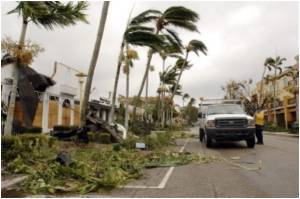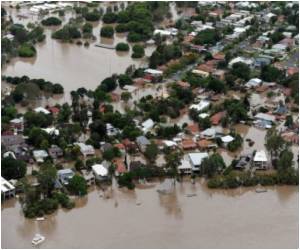The effects of a major natural disaster can linger and cause heart attacks and other health woes for years, according to a study released Sunday of New Orleans residents after Hurricane Katrina.

"This data was surprising for us," said Anand Irimpen, associate professor of medicine for the heart and vascular institute at Tulane University.
"We thought we would see a trend downward at four years," said Irimpen, who presented the long-term study of post-disaster health consequences at the American College of Cardiology conference.
Irimpen describes the phenomenon as "Post-Katrina Stress Disorder," whereby chronic stress exacerbates health problems and may give rise to psychological difficulties, which can also play a role in poor health.
The observational study was based on patients admitted to Tulane University Hospital with heart attacks in the two years prior to Katrina and the four years after hurricane. The hospital, which is inside the city itself, reopened five months after the storm.
The threefold higher rate of heart attacks also came with a new rise in psychiatric problems such as depression, schizophrenia, and bipolar and anxiety disorders -- all of which were more prevalent than at the two-year mark.
Advertisement
Mainly, the community is just too occupied with rebuilding the basic trappings of their lives to focus on staying healthy, he said.
Advertisement
"They are more likely to smoke, overuse alcohol or other substances, and are less likely to comply with treatment plans that can prevent heart attacks."
He noted that psychiatric problems were not a major factor in heart attacks two years on, but became more significant as time passed, suggesting there may be a lag between the "somatic manifestation" of mental illness into a heart attack.
The findings offer lessons for communities dealing with future disasters around the world, he said, suggesting that mobile pharmacy units or "trailer gyms" bringing portable exercise equipment into afflicted regions could help.
"Some sort of emphasis on health care post-major disaster will be very important in the future," he said.
Hurricane Katrina, the costliest natural disaster in US history, swept through the famed jazz city in August 2005, killing at least 1,500 people, smashing levees, and condemning whole neighborhoods and communities to rot and ruin.
Source-AFP










